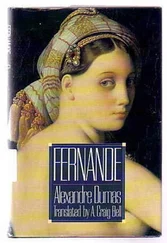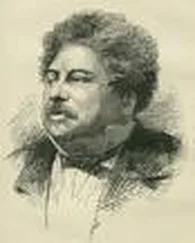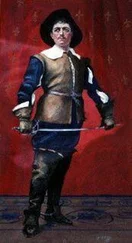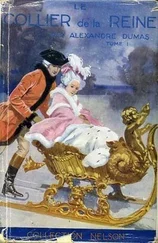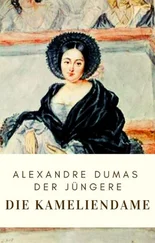Alexandre Dumas - Marguerite de Valois
Здесь есть возможность читать онлайн «Alexandre Dumas - Marguerite de Valois» — ознакомительный отрывок электронной книги совершенно бесплатно, а после прочтения отрывка купить полную версию. В некоторых случаях можно слушать аудио, скачать через торрент в формате fb2 и присутствует краткое содержание. Жанр: foreign_antique, foreign_prose, Историческая проза, на английском языке. Описание произведения, (предисловие) а так же отзывы посетителей доступны на портале библиотеки ЛибКат.
- Название:Marguerite de Valois
- Автор:
- Жанр:
- Год:неизвестен
- ISBN:нет данных
- Рейтинг книги:4 / 5. Голосов: 1
-
Избранное:Добавить в избранное
- Отзывы:
-
Ваша оценка:
- 80
- 1
- 2
- 3
- 4
- 5
Marguerite de Valois: краткое содержание, описание и аннотация
Предлагаем к чтению аннотацию, описание, краткое содержание или предисловие (зависит от того, что написал сам автор книги «Marguerite de Valois»). Если вы не нашли необходимую информацию о книге — напишите в комментариях, мы постараемся отыскать её.
Marguerite de Valois — читать онлайн ознакомительный отрывок
Ниже представлен текст книги, разбитый по страницам. Система сохранения места последней прочитанной страницы, позволяет с удобством читать онлайн бесплатно книгу «Marguerite de Valois», без необходимости каждый раз заново искать на чём Вы остановились. Поставьте закладку, и сможете в любой момент перейти на страницу, на которой закончили чтение.
Интервал:
Закладка:
Alexandre Dumas
Marguerite de Valois
CHAPTER I
MONSIEUR DE GUISE'S LATIN
On Monday, the 18th of August, 1572, there was a splendid festival at the Louvre.
The ordinarily gloomy windows of the ancient royal residence were brilliantly lighted, and the squares and streets adjacent, usually so solitary after Saint Germain l'Auxerrois had struck the hour of nine, were crowded with people, although it was past midnight.
The vast, threatening, eager, turbulent throng resembled, in the darkness, a black and tumbling sea, each billow of which makes a roaring breaker; this sea, flowing through the Rue des Fossés Saint Germain and the Rue de l'Astruce and covering the quay, surged against the base of the walls of the Louvre, and, in its refluent tide, against the Hôtel de Bourbon, which faced it on the other side.
In spite of the royal festival, and perhaps even because of the royal festival, there was something threatening in the appearance of the people, for no doubt was felt that this imposing ceremony which called them there as spectators, was only the prelude to another in which they would participate a week later as invited guests and amuse themselves with all their hearts.
The court was celebrating the marriage of Madame Marguerite de Valois, daughter of Henry II. and sister of King Charles IX., with Henry de Bourbon, King of Navarre. In truth, that very morning, on a stage erected at the entrance to Notre-Dame, the Cardinal de Bourbon had united the young couple with the usual ceremonial observed at the marriages of the royal daughters of France.
This marriage had astonished every one, and occasioned much surmise to certain persons who saw clearer than others. They found it difficult to understand the union of two parties who hated each other so thoroughly as did, at this moment, the Protestant party and the Catholic party; and they wondered how the young Prince de Condé could forgive the Duc d'Anjou, the King's brother, for the death of his father, assassinated at Jarnac by Montesquiou. They asked how the young Duc de Guise could pardon Admiral de Coligny for the death of his father, assassinated at Orléans by Poltrot de Méré.
Moreover, Jeanne de Navarre, the weak Antoine de Bourbon's courageous wife, who had conducted her son Henry to the royal marriage awaiting him, had died scarcely two months before, and singular reports had been spread abroad as to her sudden death. It was everywhere whispered, and in some places said aloud, that she had discovered some terrible secret; and that Catharine de Médicis, fearing its disclosure, had poisoned her with perfumed gloves, which had been made by a man named Réné, a Florentine deeply skilled in such matters. This report was the more widely spread and believed when, after this great queen's death, at her son's request, two celebrated physicians, one of whom was the famous Ambroise Paré, were instructed to open and examine the body, but not the skull. As Jeanne de Navarre had been poisoned by a perfume, only the brain could show any trace of the crime (the one part excluded from dissection). We say crime, for no one doubted that a crime had been committed.
This was not all. King Charles in particular had, with a persistency almost approaching obstinacy, urged this marriage, which not only reëstablished peace in his kingdom, but also attracted to Paris the principal Huguenots of France. As the two betrothed belonged one to the Catholic religion and the other to the reformed religion, they had been obliged to obtain a dispensation from Gregory XIII., who then filled the papal chair. The dispensation was slow in coming, and the delay had caused the late Queen of Navarre great uneasiness. She one day expressed to Charles IX. her fears lest the dispensation should not arrive; to which the King replied:
"Have no anxiety, my dear aunt. I honor you more than I do the Pope, and I love my sister more than I fear him. I am not a Huguenot, neither am I a blockhead; and if the Pope makes a fool of himself, I will myself take Margot by the hand, and have her married to your son in some Protestant meeting-house!"
This speech was soon spread from the Louvre through the city, and, while it greatly rejoiced the Huguenots, had given the Catholics something to think about; they asked one another, in a whisper, if the King was really betraying them or was only playing a comedy which some fine morning or evening might have an unexpected ending.
Charles IX.'s conduct toward Admiral de Coligny, who for five or six years had been so bitterly opposed to the King, appeared particularly inexplicable; after having put on his head a price of a hundred and fifty thousand golden crowns, the King now swore by him, called him his father, and declared openly that he should in future confide the conduct of the war to him alone. To such a pitch was this carried that Catharine de Médicis herself, who until then had controlled the young prince's actions, will, and even desires, seemed to be growing really uneasy, and not without reason; for, in a moment of confidence, Charles IX. had said to the admiral, in reference to the war in Flanders,
"My father, there is one other thing against which we must be on our guard – that is, that the queen, my mother, who likes to poke her nose everywhere, as you well know, shall learn nothing of this undertaking; we must keep it so quiet that she will not have a suspicion of it, or being such a mischief-maker as I know she is, she would spoil all."
Now, wise and experienced as he was, Coligny had not been able to keep such an absolute secret; and, though he had come to Paris with great suspicions, and albeit at his departure from Chatillon a peasant woman had thrown herself at his feet, crying, "Ah! sir, our good master, do not go to Paris, for if you do, you will die – you and all who are with you!" – these suspicions were gradually lulled in his heart, and so it was with Téligny, his son-in-law, to whom the King was especially kind and attentive, calling him his brother, as he called the admiral his father, and addressing him with the familiar "thou," as he did his best friends.
The Huguenots, excepting some few morose and suspicious spirits, were therefore completely reassured. The death of the Queen of Navarre passed as having been caused by pleurisy, and the spacious apartments of the Louvre were filled with all those gallant Protestants to whom the marriage of their young chief, Henry, promised an unexpected return of good fortune. Admiral Coligny, La Rochefoucault, the young Prince de Condé, Téligny, – in short, all the leaders of the party, – were triumphant when they saw so powerful at the Louvre and so welcome in Paris those whom, three months before, King Charles and Queen Catharine would have hanged on gibbets higher than those of assassins.
The Maréchal de Montmorency was the only one who was missing among all his brothers, for no promise could move him, no specious appearances deceive him, and he remained secluded in his château de l'Isle Adam, offering as his excuse for not appearing the grief which he still felt for his father, the Constable Anne de Montmorency, who had been killed at the battle of Saint Denis by a pistol-shot fired by Robert Stuart. But as this had taken place more than three years before, and as sensitiveness was a virtue little practised at that time, this unduly protracted mourning was interpreted just as people cared to interpret it.
However, everything seemed to show that the Maréchal de Montmorency was mistaken. The King, the Queen, the Duc d'Anjou, and the Duc d'Alençon did the honors of the royal festival with all courtesy and kindness.
The Duc d'Anjou received from the Huguenots themselves well-deserved compliments on the two battles of Jarnac and Montcontour, which he had gained before he was eighteen years of age, more precocious in that than either Cæsar or Alexander, to whom they compared him, of course placing the conquerors of Pharsalia and the Issus as inferior to the living prince. The Duc d'Alençon looked on, with his bland, false smile, while Queen Catharine, radiant with joy and overflowing with honeyed phrases, congratulated Prince Henry de Condé on his recent marriage with Marie de Clèves; even the Messieurs de Guise themselves smiled on the formidable enemies of their house, and the Duc de Mayenne discoursed with M. de Tavannes and the admiral on the impending war, which was now more than ever threatened against Philippe II.
Читать дальшеИнтервал:
Закладка:
Похожие книги на «Marguerite de Valois»
Представляем Вашему вниманию похожие книги на «Marguerite de Valois» списком для выбора. Мы отобрали схожую по названию и смыслу литературу в надежде предоставить читателям больше вариантов отыскать новые, интересные, ещё непрочитанные произведения.
Обсуждение, отзывы о книге «Marguerite de Valois» и просто собственные мнения читателей. Оставьте ваши комментарии, напишите, что Вы думаете о произведении, его смысле или главных героях. Укажите что конкретно понравилось, а что нет, и почему Вы так считаете.

